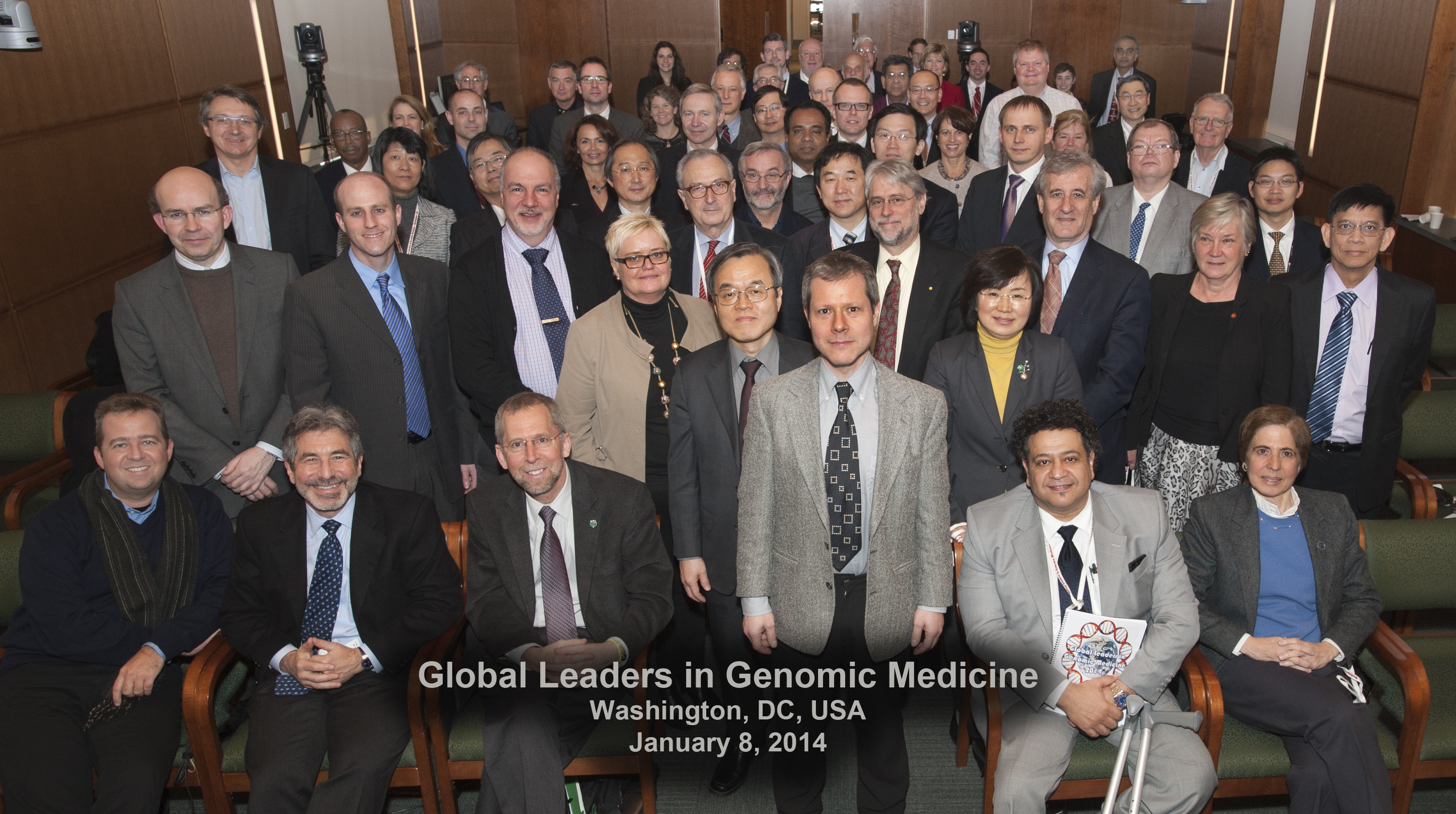On January 8-9, 2014, the Global Leaders in Genomic Medicine meeting was held at the National Academy of Sciences Building in Washington, D.C., sponsored by the National Human Genome Research Institute (NHGRI), and co-chaired by Geoffrey Ginsburg and Teri Manolio.
The goals of the meeting were to: (a) Identify areas of active translational and implementation research, potential common strategies, and opportunities for collaborative efforts, (b) Identify common barriers to implementation of genomics in healthcare and a policy agenda relevant to advances in the field, (c) Identify nations with unique capabilities (such as national healthcare systems) that may allow rapid implementation and measures of key outcomes, and (d) Discuss opportunities (such as national healthcare system) that may allow rapid implementation and measures of key outcomes.

Commemorative picture of the participants of the Global Leaders in Genomic Medicine meeting (Courtesy of Dr. Teri Manolio). Professors Al-Mulla and Patrinos are in the front row, together with Dr. Geoff Ginsburg (Duke University), Dr. Eric Green (Director; National Human Genome Research Institute), and Dr. Teri Manolio (Director; Genomic Medicine Division, National Human Genome Research Institute).
In this meeting, the Genomic Medicine Alliance Scientific Advisory Committee members, Professors Fahd al-Mulla (Safat. Kuwait) and George P. Patrinos (Patras, Greece), have presented the Genomic Medicine Alliance concept, which was very well received by the attendees.
Please click here to view the meeting slides and videos.

